In the vast and diverse tradition of Hinduism, where the divine permeates every aspect of life, the concept of family deities holds a deeply sacred and significant role. Hindus believe in the profound connection between the family lineage (kula) and its divine protector, known as the Kuladevi (for the feminine energy) or Kuladeva (for the masculine energy). These deities are not mere abstract concepts but the guardians of the family, offering protection, blessings, and spiritual guidance across generations.
Every Hindu family or clan reveres a particular tutelary deity, the Kuladevi or Kuladeva. Worshipping them is seen as a means to ensure prosperity, peace, and spiritual well-being; while also maintaining a sacred connection with one’s ancestry. These deities safeguard the family from misfortune and ensure the continuation of spiritual and material blessings.
In this article, we explore the significance of Kuladevi and Kuladeva, their origins, worship practices, and the deep spiritual connection they foster within Hindu families. We will also delve into the unique traditions and rituals associated with these deities across various regions of India.
What is Kuladevi and Kuladeva?
In Hinduism, the concept of Kuladevi and Kuladeva is rooted in the belief that each family or clan has a specific deity assigned to protect, bless, and guide them across generations. These deities are known as the ancestral tutelary gods or family gods, and their worship is considered essential for the spiritual and material well-being of the family lineage.
Kuladevi refers to the female deity worshipped by the family, while Kuladeva refers to the male deity. The choice of deity can vary depending on the tradition, region, and cultural practices of the family. These deities are believed to offer divine protection, keep away misfortune, and bless the family with prosperity, peace, and harmony.
The worship of Kuladevi and Kuladeva is different from that of Ishta Devata (personal deity) or village deities. Kuladevi and Kuladeva are seen as the first protectors of the family and are worshipped at significant milestones in life, such as weddings, births, birthdays, and other important family events. The rituals performed at their shrines are considered sacred and ensure the continuity of blessings passed down from one generation to the next.
These deities are not just symbolic figures but are believed to be the living guardians of the family, keeping the family tree rooted in spiritual blessings. It is through devotion and reverence to Kuladevi and Kuladeva that one maintains a strong connection to their ancestral roots and receives the divine grace to navigate life's challenges.
The Significance of Kuladevi and Kuladeva
In Hinduism, the worship of Kuladevi and Kuladeva holds immense spiritual and religious significance, acting as a conduit to connect the soul with both the divine and its ancestral lineage. These deities are not merely symbols or rituals but the spiritual lifeblood of the family, serving as divine protectors who nourish the soul and guide it through the vicissitudes of life.
Spiritual Significance
At the heart of their significance is the understanding that Kuladevi and Kuladeva are guardians of the family's Dharma. They are the divine forces that ensure the family remains aligned with cosmic order and universal truth. The worship of these deities acts as a spiritual anchor, a reminder that one’s life is part of a larger cosmic flow that transcends individual identity. Through their protection and blessings, the family is not only safeguarded from external misfortune but also from internal discord and spiritual disconnection.
Kuladevi and Kuladeva represent the divine presence that sustains the lineage, ensuring that the virtues and values passed down through generations remain intact. This spiritual protection helps to cultivate inner peace, wisdom, and strength, which are essential for both personal and collective growth. When families worship these deities, they align themselves with divine grace, invoking a connection to their ancestors’ wisdom and the infinite source of all creation, Brahman.
Religious Significance
Religiously, the worship of Kuladevi and Kuladeva is a rite of passage that is integral to major life events such as births, marriages, and the celebration of significant milestones. These deities act as mediators between the divine and human realms, ensuring that the family remains protected, prosperous, and spiritually fulfilled. Through the performance of sacred rituals, prayers, and offerings, devotees express their gratitude for the blessings received and seek divine intervention for future peace and prosperity.
The rituals also serve as a form of cultural continuity. By honoring Kuladevi and Kuladeva, the family ensures that the divine presence, which has been venerated for centuries, is kept alive in their hearts and homes. This act of worship is not just a tradition. It is a continuation of the family’s sacred bond with the divine, with each member contributing to this living spiritual tradition. It helps foster unity within the family, promoting shared devotion, peace, and harmony.
Connecting the Soul to Ancestral Blessings
In a deeper sense, worshiping the Kuladevi and Kuladeva connects the individual soul (Atman) with the collective soul of the family and even the ancestors. Ancestor worship plays a vital role in Hinduism, as it acknowledges that the lineage carries spiritual energy, wisdom, and blessings that transcend time. By worshiping the family deities, the family honours not only the divine but also the spiritual inheritance passed down through generations. It is said that by doing so, the ancestors are pleased, and their blessings empower the present generation to achieve higher spiritual goals and fulfil their Dharma.
In essence, the Kuladevi and Kuladeva symbolize the protection and empowerment of the family’s spiritual journey, ensuring that the family remains anchored in divine grace, both individually and collectively.
Kuladevi and Kuladeva Worship Across Indian States
In the diverse and spiritually rich traditions of Hinduism, the worship of Kuladevi and Kuladeva is a deeply rooted custom that varies across regions, communities, and even families. These deities are the spiritual protectors and guides of a family lineage, and their worship is integral to maintaining a connection to ancestral wisdom, divine protection, and family well-being.
Maharashtra
In Maharashtra, the worship of Kuladevi and Kuladeva is largely focused on Shiva and Shakti forms. Deities like Khandoba, Bhavani, and Renuka are widely revered, especially among the Marathas, Chitpavans, and Kshatriyas. Pilgrimages to shrines such as Pandharpur (dedicated to Vithoba) and Jejuri (dedicated to Khandoba) are common. The Chitpavan Brahmins hold Ambajogai as their Kuladevi.
Gujarat and Rajasthan
In Gujarat and Rajasthan, Parvati (in various forms) is the predominant Kuladevi, revered under names like Ashapura Mata, Bhadrakali, and Madhuri Mata. Families in these states, such as the Jadejas, Chauhans, and Patiyats, honor these deities for their role in protecting the lineage. Ashapura Mata is considered the Kuladevi of the Jadeja Rajputs of Kutch.
Kerala
In Kerala, Kuladevi and Kuladeva are central to many Hindu communities, with deities such as Padmanabhaswamy, Kali, Bhadrakali, Sree Sankara, and Ayyappa serving as family deities. The Namboodiri Brahmins often revere Sree Padmanabha or Sree Sankara, while other communities like the Ezhavas and Nairs revere deities like Kali and Ayyappa. Shrines dedicated to these deities are prevalent across the state.
Tamil Nadu
In Tamil Nadu, worship of Kuladevi and Kuladeva varies widely across communities. Murugan (the son of Shiva) is a prominent family deity for many, especially among Iyers, Maravars, and Vellalars. Kamakshi, Renukamba, and Angalaparameshwari are also commonly revered in different regions. For example, Madurai Veeran is considered the Kuladeva of the Maravar community, and Bhadrakali is honoured as the Kuladevi of the Nadars.
Andhra Pradesh and Telangana
In Andhra Pradesh and Telangana, the worship of Kuladevi and Kuladeva plays an essential role, especially in communities such as Arya Vysyas and Naidus. Vasavi Kanyaka Parameshwari is the Kuladevi for many, while Balaji (Lord Venkateshwara of Tirupati) is another important Kuladeva. Many families in these regions visit temples dedicated to these deities to seek blessings for prosperity and protection.
Bihar
In Bihar, the worship of Kuladevi and Kuladeva is central to the Kayastha community. Deities like Durga Mata, Shiva, and Bhairav are commonly revered. Batuk Bhairav is often considered the Kuladeva, while Bhadrakali and Manasa are revered by various communities in the state.
West Bengal
In West Bengal, the worship of Kuladevi and Kuladeva is predominant among the Bengali Brahmins and other communities. Deities like Kali, Durga, Jagadhatri, Shiva, and Parvati are revered. Kali, the fierce and protective form of the divine mother, is the Kuladevi of many families. The annual Durga Puja also serves as a form of honoring these family deities, with rituals conducted in homes and temples alike.
Uttarakhand and Uttar Pradesh
In Uttarakhand and Uttar Pradesh, Kuladevi and Kuladeva worship is closely tied to Shakti worship. Deities such as Maa Ganga, Maa Durga, Lord Vishnu, and Shiva are revered. The Brahmin and Kshatriya communities often have their specific Kuladevata, and pilgrimages to sacred shrines like Kedarnath, Badrinath, and Gangotri are considered acts of devotion to their ancestral deities.
Punjab
In Punjab, the worship of Kuladevi and Kuladeva is often associated with local goddesses like Mata Vaishno Devi, Durga, and Kali. These deities are believed to protect the family from evil and misfortune. Mata Vaishno Devi is considered the Kuladevi for many families in the region, and shrines dedicated to her are scattered throughout the state.
Goa
In Goa, Kuladevi and Kuladeva worship is very important among the Saraswat Brahmins, Daivajna Brahmins, and Konkani Kharvis. Deities such as Mahalakshmi, Shantadurga, Mangesh, and Ramdev are revered as family deities. Goa is home to many Kuladevi temples that serve as spiritual sanctuaries for families, ensuring the divine blessings of prosperity, health, and happiness.
Karnataka
In Karnataka, the worship of Kuladevi and Kuladeva is widespread among Brahmin, Kshatriya, and Vokkaliga communities. Temples dedicated to deities like Lord Narasimha, Goddess Chamundeshwari, and Sri Raghavendra Swami serve as focal points for ancestral worship. These deities are believed to protect the family from calamities and ensure spiritual growth.
Rituals and Practices for Worshiping Kuladevi and Kuladeva
Worshiping one's Kuladevi (family goddess) and Kuladeva (family god) is a deeply rooted tradition in Hinduism, reflecting a profound connection to ancestral lineage and spiritual heritage. These deities are believed to offer protection, blessings, and guidance to the family, ensuring prosperity and harmony across generations.
Understanding the Significance
The worship of Kuladevi and Kuladeva transcends mere ritual; it is a spiritual practice that:
Strengthens Family Bonds:
Reinforces the unity and continuity of the family lineage.
Ensures Protection:
Guards the family from misfortunes and negative energies.
Facilitates Ancestral Connection:
Honors and remembers the forebears, seeking their blessings.
Promotes Prosperity:
Invokes divine favor for health, wealth, and overall well-being.
Spiritual and Religious Importance
Engaging in these rituals is not just about performing ceremonies; it's about:
Aligning with Ancestral Traditions:
Upholding customs passed down through generations
Seeking Divine Favor:
Requesting blessings for personal and familial growth.
Cultivating Devotion:
Deepening one's faith and connection with the divine.
Purifying the Mind and Soul:
Using rituals as a means to cleanse and elevate one's spiritual state.
Essential Items for the Puja
To conduct a proper worship session, certain items are traditionally required:
Sacred Offerings:
Fruits, flowers, betel leaves, and nuts.
Incense and Lamps:
For purifying the space and creating a serene atmosphere.
Holy Water:
To cleanse and sanctify the area and participants.
Sacred Texts or Mantras:
Scriptures or chants specific to the family deity.
Traditional Utensils:
Brass or copper vessels, plates, and bells.
Steps to Perform the Ritual
Preparation of the Space: Cleanse the area where the worship will take place. Lay a clean cloth and set up an altar with the idol or picture of the Kuladevi/Kuladeva.
Invocation:
Light incense and lamps, and offer prayers to invite the deity's presence.
Offerings:
Present the prepared offerings with devotion, reciting appropriate mantras or prayers.
Main Worship:
Perform the primary rituals, which may include chanting, singing hymns, or reading sacred texts.
Prayers for Ancestors:
Remember and honour the ancestors, seeking their blessings.
Concluding Rituals:
Offer final prayers, distribute prasad (blessed food), and express gratitude.
Regional Variations in Worship
While the core essence of worship remains consistent, practices can vary across regions:
Maharashtra:
Worship of deities like Khandoba and Bhavani.
Gujarat and Rajasthan:
Reverence for various forms of Parvati Devi.
Southern India:
Deities such as Goddess Vasavi Kanyakaparameshwari and Lord Narashima are prominent.
Goa and Karnataka:
Temples dedicated to deities like Shantadurga and Mahalakshmi.
Visiting Temples and Pilgrimages
Families often undertake pilgrimages to temples dedicated to their Kuladevi/Kuladeva, especially during significant life events like weddings, childbirth, or milestone birthdays. These visits are seen as opportunities to:
Seek Blessings:
For the well-being and prosperity of the family.
Strengthen Faith:
Deepen one's devotion and spiritual connection.
Celebrate Traditions:
Engage in communal worship and uphold ancestral customs.
The Role of Family Priests
In many families, a designated priest or Purohit plays a crucial role in guiding and conducting the worship rituals. Their responsibilities include:
Conducting Ceremonies:
Leading the family in worship and rituals.
Providing Guidance:
Offering spiritual advice and interpretations of sacred texts.
Maintaining Traditions:
Ensuring that rituals are performed correctly and consistently.
Importance of Regular Worship
Neglecting the worship of Kuladevi and Kuladeva can lead to:
Spiritual Disconnect:
A weakening of the bond between the family and their ancestral deities.
Loss of Protection:
Absence of the divine shield that safeguards the family.
Cultural Erosion:
Diminishing of traditional practices and values.
Regular worship helps in:
Maintaining Divine Favor:
Ensuring continuous blessings and protection.
Cultural Preservation:
Keeping alive the customs and traditions of the family.
Spiritual Growth:
Fostering a deeper connection with the divine.
Consequences of Neglecting Kuladevi/Kuladeva Worship
The worship of Kuladevi and Kuladeva holds immense significance, not only in maintaining spiritual connection but also in preserving the spiritual shield that protects the family from various challenges. Neglecting this practice can lead to unforeseen spiritual and material repercussions, often manifesting as a disruption in the family’s harmony and prosperity.
1. Loss of Spiritual Protection
At its core, Kuladevi and Kuladeva worship is considered a shield of divine protection for the family. These deities are believed to ward off negative influences, bad luck, and misfortune. When a family stops honoring their Kuladevi or Kuladeva, they essentially cut themselves off from this divine protection, leaving the family vulnerable to:
Negative Energies: The absence of the deity’s blessings can invite malefic energy and cause spiritual disharmony.
Favourable Influences: The family may begin to experience a decline in prosperity, health, and overall well-being.
2. Family Discord and Internal Struggles
One of the immediate effects of neglecting Kuladevi or Kuladeva worship is family conflict. Without the protection and divine guidance offered by the family deity, relationships within the family may begin to deteriorate. This can manifest as:
Increased Disputes: Arguments and misunderstandings may become frequent, leading to disharmony.
Erosion of Family Unity: The absence of a spiritual anchor may create a sense of fragmentation among family members, weakening the collective bond.
3. Decline in Material Prosperity
Kuladevi and Kuladeva are also believed to bless the family with material prosperity, health, wealth, and success in all endeavours. Neglecting their worship can lead to:
Financial Loss: The family may experience a sudden or gradual decline in financial stability, with unexpected setbacks and business troubles.
Health Issues: Physical and mental well-being may also suffer as a result of the spiritual disconnect.
Without the divine favour that these deities offer, families often find themselves caught in a cycle of struggles, disease, and misfortune that seems to have no immediate cause.
4. Hindrances in Personal and Spiritual Growth
Kuladevi and Kuladeva are not merely family protectors; they are also spiritual guides who help the family navigate the path of Dharma (righteous living) and Karma (actions). Neglecting their worship can result in:
Spiritual Stagnation: The family may experience a lack of spiritual growth, resulting in a disconnection from the higher self and the divine.
Loss of Direction: The absence of the deity’s guidance can make it difficult for individuals to find a sense of purpose, and the family’s collective direction may falter.
5. Ancestral Disconnect
In Hindu tradition, honouring the Kuladevi and Kuladeva is a way of honouring one’s ancestors and maintaining continuity with the past. Neglecting this practice leads to:
Spiritual Disrespect to Ancestors: Failing to worship these deities can be seen as a form of neglect towards the ancestral spirits. In Hindu culture, ancestors play a vital role in shaping the family’s spiritual and material fate.
Breaking of Family Tradition: The rituals and prayers passed down through generations are key to keeping the family’s traditions alive. When these traditions are neglected, the lineage becomes disconnected from its divine roots.
6. Increased Misfortune and Negative Events
Many families who abandon the worship of their Kuladevi/Kuladeva find themselves facing unexplained misfortunes. Some of the common signs of such neglect include:
Accidents and Tragedies: Unforeseen accidents or family tragedies that seem to occur without any logical reason.
Health Problems: Sudden and unexplained illnesses affecting multiple family members.
Legal and Financial Troubles: Unresolved legal cases or sudden financial setbacks that appear inexplicably.
In some cases, families begin to notice a pattern of misfortune that follows them, which is believed to be the result of spiritual neglect.
Benefits of Worshiping Kuladevi and Kuladeva
Worshiping Kuladevi and Kuladeva is much more than a ritualistic practice; it is a deeply spiritual act that connects the family to the divine energies that have guarded and blessed their lineage for generations. This worship holds immense significance, and the benefits that flow from it are both spiritual and material. The protection, peace, and prosperity bestowed by Kuladevi and Kuladeva help sustain the family’s harmony and guide it through life's challenges. Let us explore the profound benefits of this sacred worship:
1. Divine Protection and Shielding
The primary benefit of worshiping Kuladevi and Kuladeva is divine protection. These deities act as the spiritual shield for the family, guarding against negative forces, evil eye, and other malevolent energies. Regular worship ensures that:
- Negative energies are kept at bay.
- Accidents, misfortunes, and unforeseen calamities are prevented or mitigated.
- The family is protected from spiritual harm and worldly misfortunes.
- The sacred energy of Kuladevi and Kuladeva creates an invisible protective aura around the family, ensuring their well-being.
2. Strengthening Family Bonds
Worshiping the family deity fosters a deep sense of unity and togetherness. It binds the family members spiritually and emotionally, bringing them closer as they share in the same divine reverence. This worship creates a shared sense of purpose and spiritual responsibility, which is essential for:
- Strengthening familial ties.
- Cultivating a sense of mutual respect and love.
- Building a harmonious and peaceful family atmosphere.
- The collective worship experience also reinforces shared values and traditions, helping future generations stay connected to their roots.
3. Prosperity and Abundance
Kuladevi and Kuladeva are often associated with material prosperity, bringing wealth, success, and abundance to the family. Through their blessings, the family is granted:
- Financial stability and success in business ventures.
- Good health and protection from diseases.
- Blessings of fertility and the growth of future generations.
When a family is under the divine protection of its Kuladevi and Kuladeva, the blessings of prosperity and well-being naturally flow into their lives, ensuring a prosperous future.
4. Spiritual Growth and Guidance
Beyond material benefits, the worship of Kuladevi and Kuladeva is an essential spiritual practice. These deities serve as guides on the path of self-realization and spiritual awakening. They help:
- Strengthen one's connection to the divine.
- Cultivate inner peace, contentment, and equanimity in the face of life’s trials.
- Encourage spiritual discipline and the cultivation of virtues such as gratitude, humility, and devotion.
Through devotion to Kuladevi and Kuladeva, a family is able to keep their spiritual focus intact, fostering a life rooted in Dharma (righteousness) and divine grace.
5. Ancestral Blessings and Legacy
Worshiping Kuladevi and Kuladeva also allows the family to honour and connect with their ancestors. By paying homage to the family deity, the current generation:
- Receives the blessings of their ancestors, who are believed to be watching over and guiding them.
- Ensures the continuity of spiritual traditions, safeguarding them for future generations.
- Acknowledges the spiritual bond that transcends time and connects the family to a larger divine and cosmic order.
- This act of devotion is seen as a way of thanking the ancestors for their contributions and ensuring that their legacy continues to flourish.
6. Harmony and Peace
Kuladevi and Kuladeva worship also bring a sense of harmony and peace into the family’s life. With regular prayers and rituals, the divine energy that flows through the deities fosters:
- Peaceful resolution of conflicts.
- Restoration of balance in relationships, both within the family and externally.
- Emotional stability and a calm environment, free from unnecessary stress or chaos.
- The family is thus able to overcome internal tensions and live in alignment with their higher purpose, making the home a sanctuary of peace and love.
7. Protection from Spiritual Disturbances
Kuladevi and Kuladeva serve as protectors against spiritual disturbances and malefic planetary influences. Regular worship is believed to:
- Shield the family from harmful astrological influences and planetary doshas.
- Provide spiritual clarity, helping the family navigate difficult situations with wisdom.
- Guard the family from negative energies that may be caused by envy, jealousy, or external forces.
- The family’s connection to their Kuladevi or Kuladeva acts as a spiritual firewall, protecting them from unseen threats and maintaining the sanctity of their environment.
8. Blessings for Future Generations
Kuladevi and Kuladeva bless future generations, ensuring that:
- The family lineage remains blessed with health, wealth, and prosperity.
- Children grow up to be virtuous, wise, and spiritually inclined.
- The family continues to flourish in the same divine protection, ensuring the prosperity of many generations to come.
Conclusion
The worship of Kuladevi and Kuladeva is a powerful spiritual practice that goes beyond ritual. It is a life-affirming act that brings divine protection, material prosperity, spiritual growth, and family harmony. By honouring these deities, a family ensures that it remains connected to its ancestral roots, divinely blessed and guided through all aspects of life. The benefits of this worship are profound and lasting, ensuring a legacy of peace, prosperity, and divine grace for generations to come.


-in-Astrology.jpg)
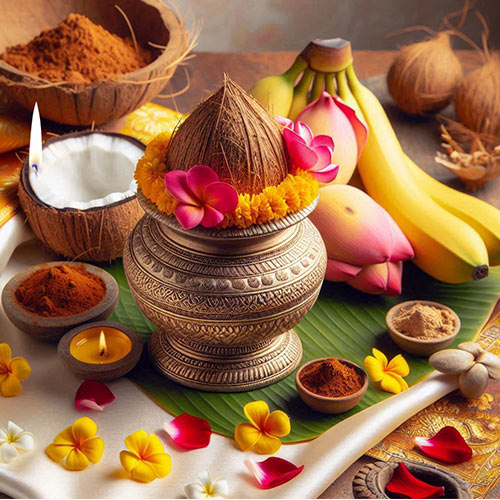
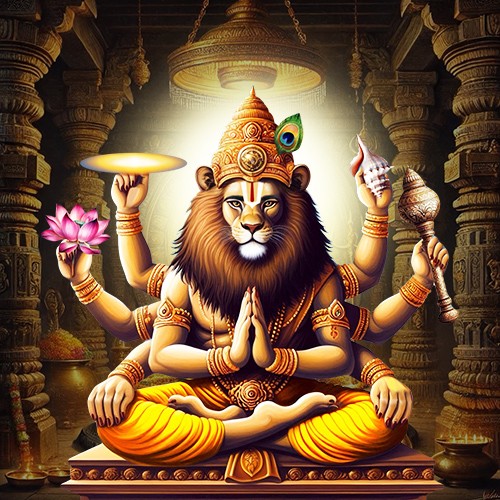
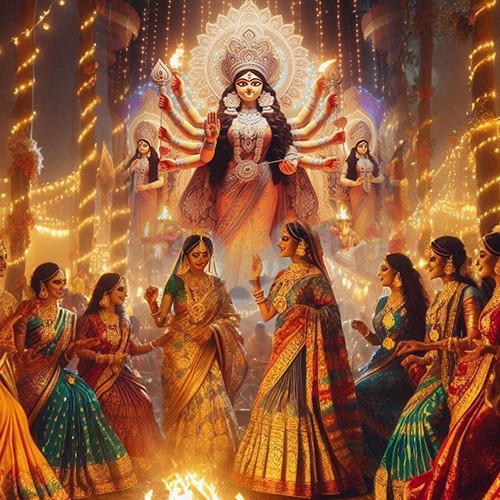
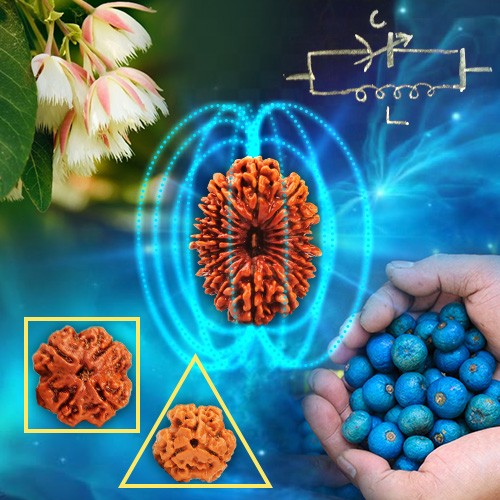

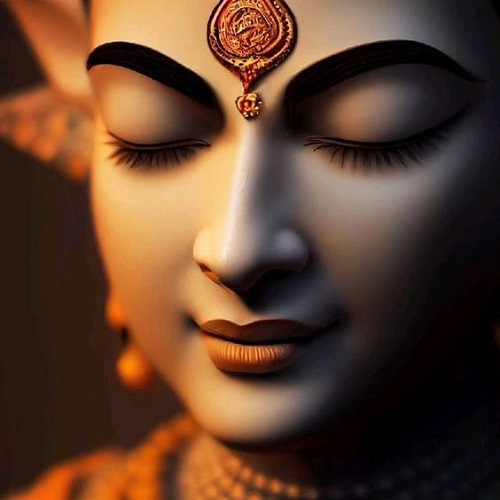
.jpg)
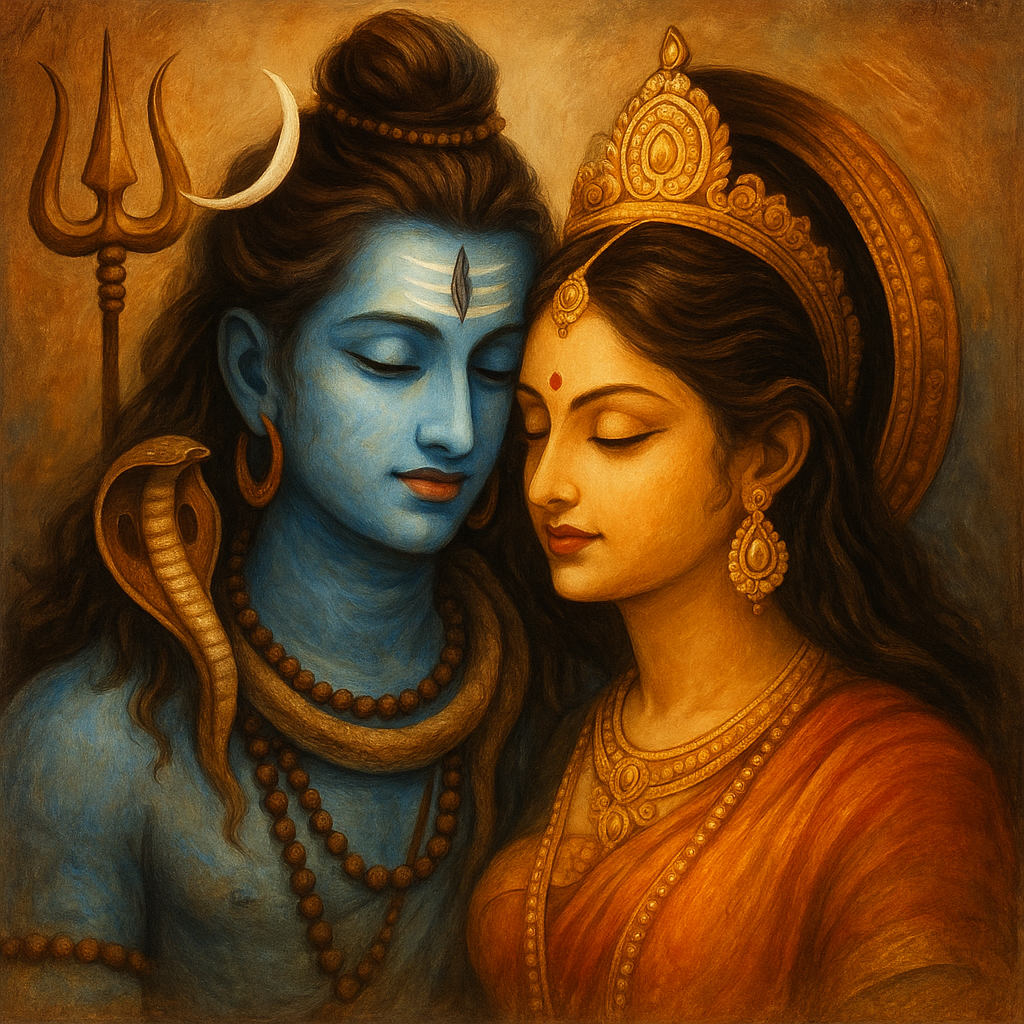
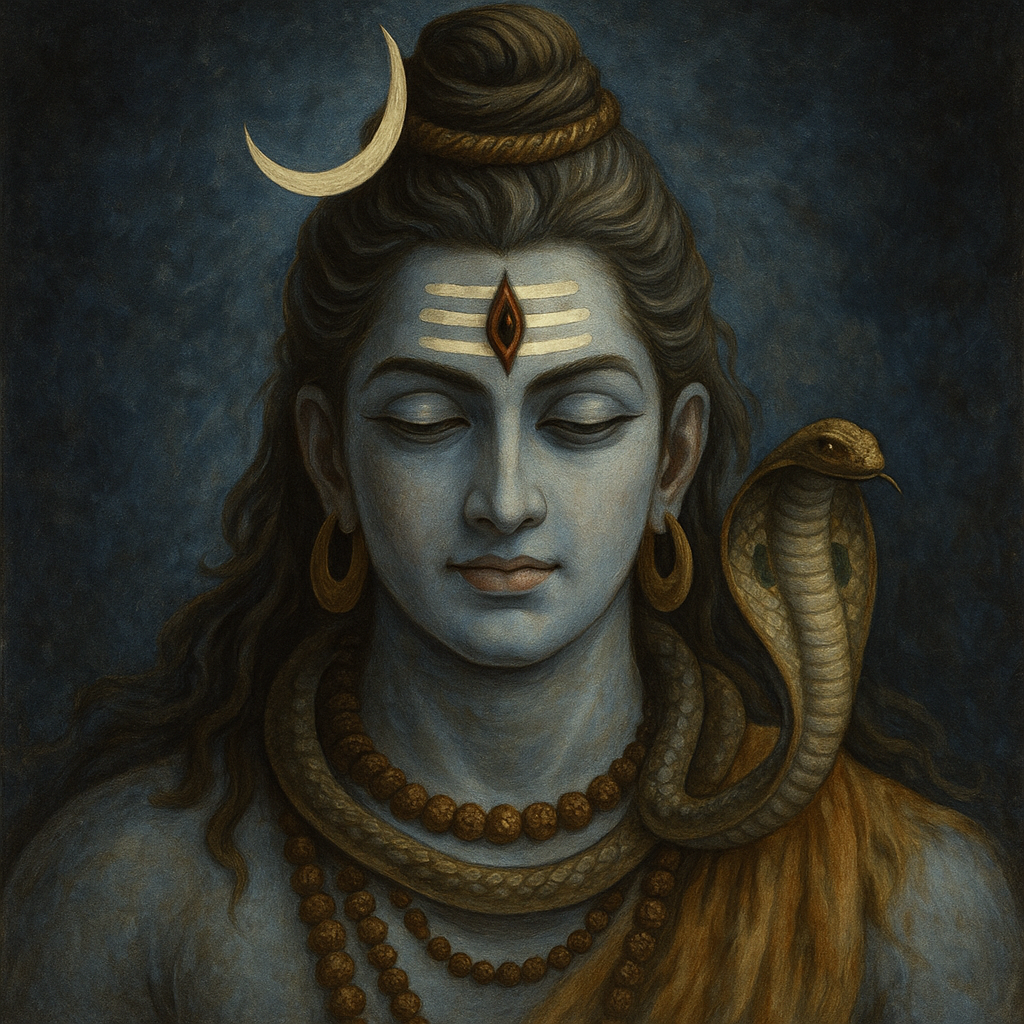
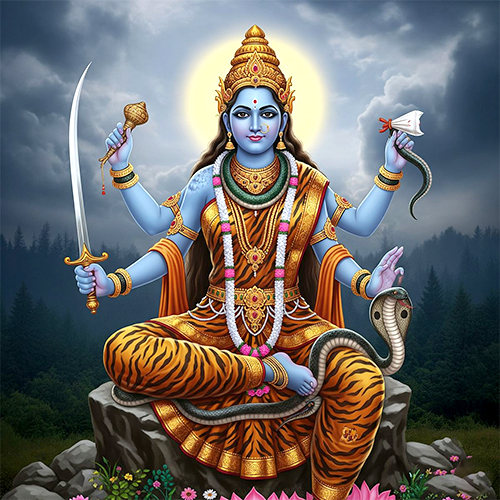
Rohan jootoo
|July 10, 2025
I don’t know my kuldevi my name is Rohan jootoo
sneha wadkar
|April 16, 2025
want to know kuldevi and dev
Ramkaran pilaniyan
|April 4, 2025
मेरी गोत्र पिलानिया जाट है हमारी कुलदेवी कौन सी है
KISHORE RANGAPURE
|March 16, 2025
Myself Kishore Surname Rangapure, I want to know about my Kul devta and other details
Deepali
|February 15, 2025
Want to know kuldevi
Krunal Patil
|February 12, 2025
कुलदेवी कुलदैवत
Satish Kumar
|December 11, 2024
Sir/madam, My name is Satish Kumar surname is shrungavarapu i didn't know my kuladevi iam eagerly waiting for know this because I facing lot of problems in life please find solution for this.
Sanjay kantilal somaiya
|November 13, 2024
Kuldevi kon chhe ?
Pappuram daukiya
|October 16, 2024
Daukiyon ki kuldevi maa konsi hai
Arindam sarkar
|August 28, 2024
Sir, amar nam Arindam sarkar, kayostho,madgollo gotro,sinho rashi ...doya kore amake amar kuldevta k janan...amar poribar somossai ache.... dhonyobad
SUDHIR BOBADE
|August 15, 2024
I WANT TO KNOW MY Gotra AND MY KULDEV AND Kul Swamini. SUDHIR ABASAHEB BOBADE. 9987580045
Sita Kanta Sahoo
|August 15, 2024
Iam teli caste gotta nagasya but i dont know our kuldavi kindly tell me name of my godes
Tushar Dhar
|July 29, 2024
Amar gutra Alimyan. Ami kul devotar nam janina . Ki kore janbo.
Dharmesh Kherade
|July 25, 2024
I am mahrastian surname Kherade and date of birth 24-07-1976-surch in kuldevi
Ajay Begraj
|July 14, 2024
Sir, my name is Ajay Begraj my gotra is Begraj i belong to Jalandhar virka pind can you tell my kuldevi and kuldevta
Maulik
|June 24, 2024
I want to know my kuldevi and kuldevta
Payal
|May 16, 2024
Sir my name is payal and my gotar is bhuriya ( jaat caste) sir I don't know kuldevi and kuldevta of my family so sir please tell me about my family's kuldevi and kuldevta
Prashant Gautam
|March 28, 2024
I am Brahmin and my parents says my gotra is Pradhan and my uncles say my gotra is Gautama...who is my kuldevi. I don't know anything